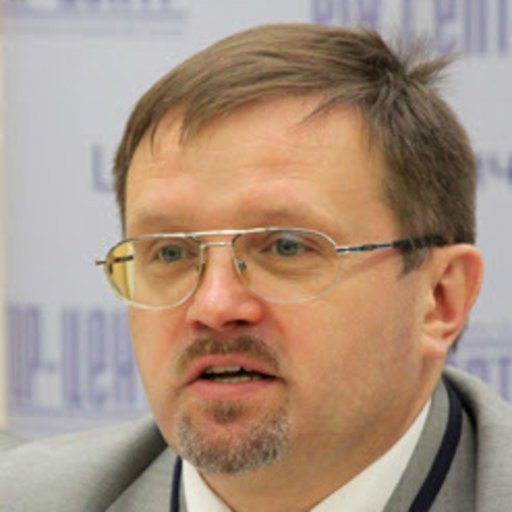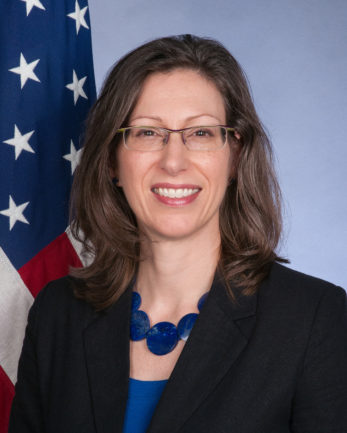Dr. Kozyulin is a Professor of the Academy of Military Science. Currently, he is a Head of the Center for Global Studies & International Relations, The Institute of Contemporary International Studies Diplomatic Academy, Ministry of Foreign Affairs of the Russian Federation
So far, the Ukrainian military has proven its counter-offensive capability. If we look at the war scenario, it seems Russia could not succeed in the decisive role to end the war. What is the factor that has pulled Russia back from a total victory so far?
Indeed, at the initial stage of the conflict, the Ukrainian armed forces demonstrated sufficient resilience and good combat training. The history of independent Ukraine, as often happens with newly created states, was built on the denial of the common past of the two peoples. In particular, this was manifested in the preparation for war with Russia. I know that when accepting former Soviet officers for military service in the Ukrainian army, the military was asked the question: will you be ready to fight with Russia? Those who gave a negative answer were not accepted into the Ukrainian armed forces.
That is, in fact, from the first day of independence, Ukraine began to prepare for a conflict with Russia. NATO countries actively helped this, trained the Ukrainian military according to their program, and contributed to the transition of the Ukrainian Armed Forces to NATO standards both in training and technology.
In the first decades, it looked funny. People believed that the collapse of the USSR was a temporary mistake. It was completely difficult to believe that a military conflict between Ukraine and Russia was possible. But over time, the situation began to change. Moreover, with the active participation of the US administration.
Mr. Putin recently stated that we won’t give up what’s ours,” adding, “If they want to negotiate, let them negotiate. Is there any chance for a cease-fire between Russia and Ukraine? What is your take on this?
President Putin has never clearly outlined the material boundaries of what, as you indicate, “belongs to us.” But he often talks about the denazification and demilitarization of Ukraine with a neutral status assigned to it.
If we remember history, we will see that every time Russia’s European opponents planned an attack on our country, they hoped to use the multinational nature of our state to their advantage. It has always been a primitive strategy – to sow discord and pit the people of our country against each other.
This is what Napoleon Bonaparte did, hoping to find allies in Ukraine against the Russian Tsar. This is what Imperial Germany did, creating pro-German proxy states in Ukraine and Belarus during the World War I. Nazi Germany did the same during World War II.
During the Cold War, the West actively stimulated the creation of a nationalist movement in Ukraine and the Baltic states. And this sits deeply in the historical memory of Russians. Russia is afraid of having unfriendly aggressive neighbors on its borders. History teaches that this ends badly. That is why the denazification and demilitarization of Ukraine with the securing of a neutral status is so important today.
I think Putin is not talking about territories but about security. And this concerns not only security on the part of Ukraine. The question is broader: it is necessary to ensure the security of Russia’s western borders. I assume that when the conflict in Ukraine comes to an end, the topic of creating a new European security system will be very relevant. I hope that such a system will become part of the peace plan. And this will suit both Russia and the European Union.
Following the war between Israel and Hamas, the Ukrainians seem to have faced setbacks. The Kremlin may see the new war front in the Middle East as an advantage. What is your take on the future of Western aid to Ukraine?
Obviously, the war in the Middle East plays into Russia’s hands, since it diverts military resources that the US and NATO send to Kyiv.
Europe is tired of bad news, of the sanctions war and related economic problems. For the people of the European Union, the conflict in Ukraine is not of an existential nature. I think that European politicians are already mentally prepared to search for compromises.
For Russia the situation is different. Losing this conflict would be a colossal shock for the country. In addition, the Russian people traditionally have a high threshold level of patience. Russians have retained their willingness to sacrifice from the Soviet mentality. “We need victory, We will pay any price for it” – this phrase from the cult Soviet film remains in the category of “catch phrases” today.
Mr.Putin has announced that he will seek a fifth presidential term in the upcoming March. You once said, “The US goal is to exhaust Russia to the point that will lead to a change of power in the country”. Is there a chance of a pro-Western leader emerging in Russia in the near future?
I don’t see such a leader anytime soon. The conflict in Ukraine has rallied the Russian people around Putin. The President’s rating today is higher than ever. US sanctions have not exhausted Russia. You will not see economic decline or moral despondency in Russia. On the contrary, to some extent, Russia has become stronger, more concentrated, and more organized.
Anti-Western sentiments in society are trending today. But it is known that the political pendulum is swinging, and one day Russia will restore relations with the West. After all, Russian culture is part of European culture. Half of the Russian territory is Europe.
China is emerging as reshaping power in the Indian Ocean region and is directly challenging India’s regional influence while proclaiming a ‘no limit partnership’ with the Kremlin. Against this backdrop, India is in a position to cooperate as a counterweight to China in the U.S.-led geopolitical arena. However, India has a historic and enduring relationship with Russia. How do you see the future of India–Russia ties?
I remember that in 1990-2000 when Russia was weak, the Indian military said quite loudly that the quality of Russian weapons was falling, Russia was no longer what it had to be, and its influence was declining.
But I was always surprised by Indian diplomats who, on various occasions, always showed examples of some kind of historical wisdom. They have always emphasized the value of friendship between our countries.
I think that Russian-Indian relations are based on historical wisdom. Times change and countries change, but such a close and frank relationship that has developed between India and Russia can survive all difficulties. No one can find insurmountable contradictions between our countries. We see a mutual desire to develop relations in all areas. Yes, the necessary potential for this is not always found. But the desire remains, and the potential will be found.




